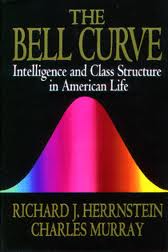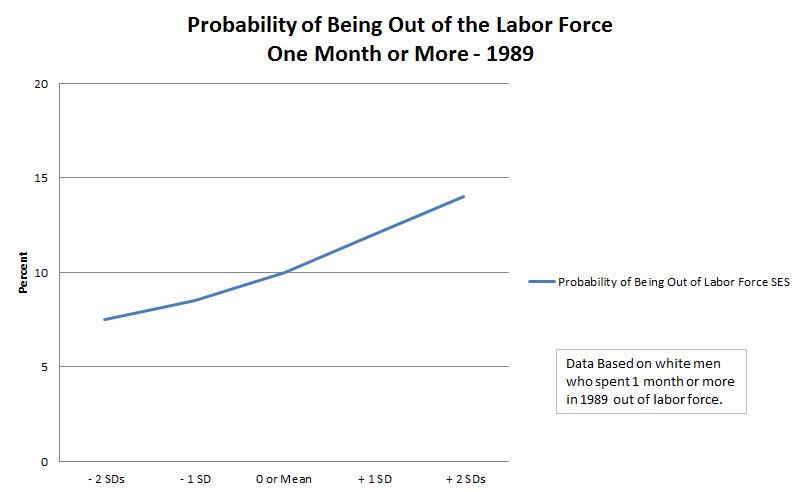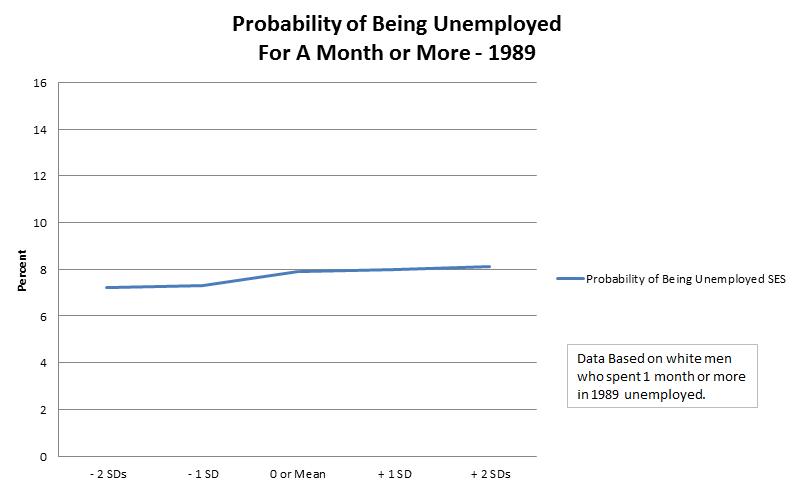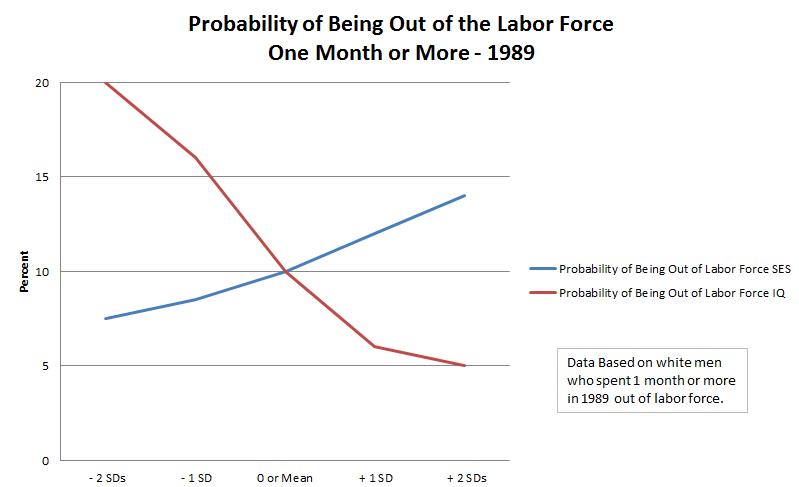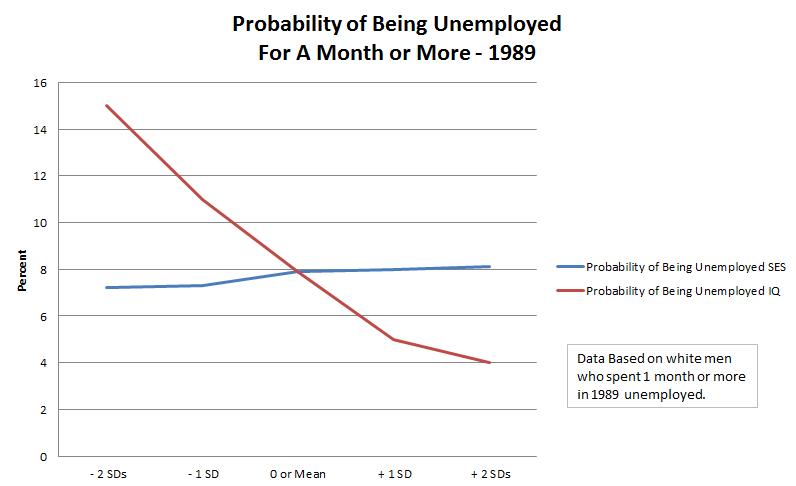This post continues the comparison of the impact of the socioeconomic status of individuals and the IQ of those same individuals. I’m going off the book “The Bell Curve” written by Herrnstein and Murray. So far I’ve covered the comparison with respect to poverty and education. This post will deal with employment, keeping it and looking for it.
Back when I started this series, I demonstrated data that spoke to each topic using SES data only. For example, looking at the probability of being out of the labor force for 1 month or more in 1989 bases on SES, the data showed this:
The data seems counter intuitive. As the SES status of the family increased, the chance that a young man would drop out of the labor force increased as well. This may be explained by the fact that wealthier families could afford to have their son’s not work for a time while those from poorer families felt a greater need to earn money.
Next we looked at unemployment. That is, still in the labor force but not working for a month or more in 1989. Here is the impact of SES:
There is no impact. The SES of the individual’s family doesn’t impact the unemployment of the young man.
Let’s compare SES and IQ.
First, go back to labor force participation:
As man with very low IQ had a 4x percent chance of remaining out of the labor force compared to a man with very high IQ. Even moving in one standard deviation, the less intelligent man had more than twice the probability of staying out of the labor force than the more intelligent man.
Those men that are unemployed?
Again, not close. While SES has non meaningful impact on the probability of unemployment, it’s clear that IQ does. Mirroring labor force participation rate, the unemployment rate for the least intelligent is nearly 4x that of the most intelligent.
The idea that the SES of an individual or his family influences the fate of that person has significant influence in today’s debate. And I’m sure that folks with money are more able to offset life’s unexpected challenges. However, it may be that the intellectual ability of an individual has dramatically more impact on his or her success than the wealth, or lack thereof, of his or her family.

